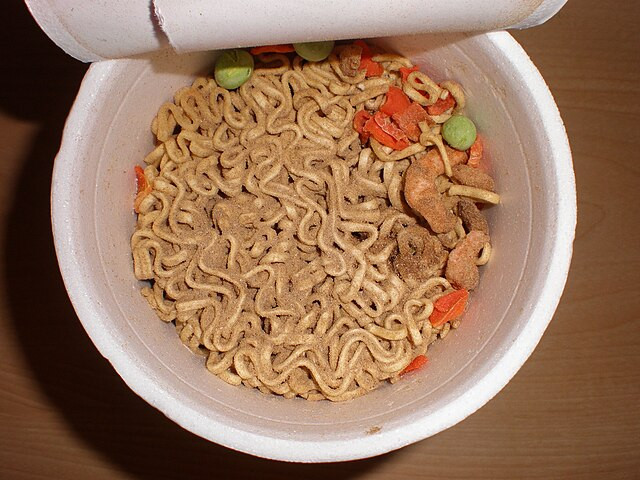The recall of Sun Noodle's S&S Cup Saimin-Noodles With Soup & Garnishes, due to the undeclared presence of egg, has been reclassified as a Class I recall by the Food and Drug Administration (FDA), marking it as the most severe type of recall under the agency's guidelines. This classification indicates a "reasonable probability" that use or exposure to the product could cause serious adverse health consequences or death.
Initially, the recall was not classified under any of the FDA's three levels. The change to a Class I recall underscores the potential danger posed by the undeclared allergen, which can trigger severe reactions in individuals with egg allergies. The affected products were distributed across four states: Hawaii, California, Nevada, and Utah.
Sun Noodle, a food manufacturer based in Hawaii, had voluntarily initiated the recall in May after discovering the presence of egg white powder in the Fish Cake component of the product. The recall covers products produced and sold between May 9, 2023, and May 8, 2024. Consumers who have purchased these products are advised to return them to the place of purchase for a full refund.
Eggs are one of the nine major allergens identified by the FDA. The other eight are milk, soybeans, fish, crustacean shellfish, tree nuts, peanuts, wheat, and sesame. Allergic reactions to these substances can range from mild symptoms such as hives and rashes to severe, life-threatening conditions such as anaphylaxis, which includes symptoms like swelling of the throat, difficulty breathing, and loss of consciousness.
The FDA's reclassification of the recall highlights the critical need for accurate labeling in the food industry. Food manufacturers are required to disclose all major allergens on their product labels to protect consumers with food allergies. Failure to do so can lead to serious health risks and potentially fatal allergic reactions.
In the original news release, Sun Noodle expressed its commitment to consumer safety, stating, "We sincerely apologize for any inconvenience or concern this may cause and assure our customers that we are taking all necessary steps to ensure the safety and quality of our products." The company emphasized that the egg white powder was limited to the Fish Cake within the product and that it had very limited distribution.
Food allergies are a significant public health concern. According to the FDA, symptoms of food-allergy reactions can include hives, rashes, swelling, vomiting, diarrhea, abdominal cramping, and coughing or wheezing. More severe reactions, known as anaphylaxis, can lead to life-threatening conditions.
The FDA's recall classifications are designed to inform the public about the severity of the health risks associated with recalled products. A Class I recall is the most serious, indicating a high probability of severe health consequences or death. A Class II recall is issued when exposure to a product may cause temporary or medically reversible adverse health consequences, while a Class III recall is for products that are unlikely to cause adverse health consequences.
The reclassification of the Sun Noodle recall serves as a reminder of the importance of transparency and adherence to labeling regulations in the food industry. Consumers rely on accurate product information to make safe dietary choices, particularly those with food allergies.
The FDA and food manufacturers must work together to ensure that all allergens are properly disclosed on product labels. This collaboration is crucial in preventing allergic reactions and safeguarding public health. Sun Noodle's swift response to the recall and its efforts to inform consumers about the issue demonstrate the company's dedication to consumer safety and regulatory compliance.
Consumers are urged to check product labels carefully and to return any recalled items to the place of purchase for a refund. The FDA's actions highlight the serious health risks associated with undisclosed allergens in food products and the need for rigorous safety measures in food production. By promoting transparency and accurate labeling, the FDA and food manufacturers can help prevent potentially life-threatening incidents and protect the health of consumers.






